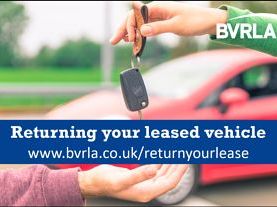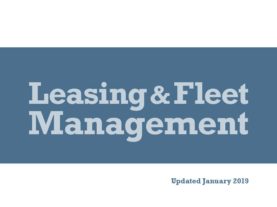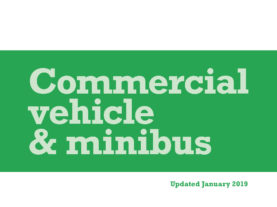Your questions answered about leasing a vehicle
What is vehicle leasing?
Vehicle leasing is a long-term rental agreement that allows you to use a car or van for a set period of time at a fixed monthly price. It is an alternative, and often cheaper, funding solution to buying a new vehicle.
What are the different types of lease?
Hire purchase is a loan for the full cost of the vehicle, and you’ll need to pay a deposit and then make fixed monthly payments over an agreed time period. This means you don’t own it until the last payment has been made.
Personal contract purchase (PCP) is a type of car finance similar to hire purchase but you usually make lower monthly payments. Instead of getting a loan for the full cost of the car, you get a loan for the difference between its brand new price and the predicted value of the car at the end of the hire agreement. This is based on a forecast of annual mileage over the term of the agreement. At the end of the term you can:
- Trade the car in and start all over again.
- Hand back the car to the dealer and pay nothing.
- Pay a final payment (also known as a balloon payment) of the resale price of the car and keep it.
Personal contract hire (PCH) is a product where you pay a fixed monthly amount for the use of a vehicle, and at the end of the hire agreement you hand the vehicle back, and you have no option to purchase it. The monthly charge is based on the length of the contract and the expected mileage. Road Fund Licence is provided and you have the option to add a maintenance package.
What is a balloon payment?
A balloon payment is a lump sum owed to the leasing company, after all regular monthly repayments have been made. When the term of the lease expires you can pay the balloon payment to purchase the vehicle.
How long is a lease period?
Contracts with leasing companies usually range from 12 to 48 months, depending on the vehicle and contract chosen. Shorter contracts mean you are able to change your vehicle more often, while longer contracts will generally mean cheaper monthly payments.
Who is responsible for Service and MOT?
You are responsible for ensuring the vehicle is compliant with the servicing and MOT requirements. This information can be found in the vehicle handbook. It’s worth noting that if you take a 48-month (four year) agreement, you will be responsible for the MOT in the final year of the contract.
Is road tax and insurance included in the leasing price?
Road tax- If you have a PCP contract, the first year is usually covered by the leasing company, however, you will be the responsible for the costs after one year. If you have a PCH contract the road tax will be included in the monthly cost.
Insurance – You are responsible for insuring the vehicle at all times. You will not be able to take the vehicle if you have not arranged insurance for the day of collection/delivery.
What is the difference between a fully maintained contract and a self-maintained contract?
Fully maintained contract
You may be able to add a comprehensive maintenance package to your lease contract for an additional fixed monthly cost. This will cover servicing, replacement tyres and other consumable parts. A maintenance package gives you peace of mind, reduces unexpected bills and lowers overall running costs associated with your vehicle.
Self-maintained (may be referred to as non-maintained or driver-maintained) and means anything that goes wrong with the vehicle that is not covered by the manufacturer’s warranty is your responsibility
What happens if you do not comply with the servicing requirements?
If you do not comply with the servicing requirements and a fault appears with the vehicle, this may not be covered under the vehicle’s warranty and you will remain liable for the cost.
What charges may apply at the end of the contract?
Excess mileage The cost of your monthly repayments are based on the expected mileage and if you exceed this amount you will be charged for excess mileage. The charge per mile will be shown on your contract.
Damage Fair wear and tear occurs when normal usage causes acceptable deterioration to a vehicle. Fair wear and tear is not to be confused with damage which occurs as a result of a specific event such as impact.
At the end of the lease the vehicle will be inspected for damage, and you will be charged for any considered to be outside the agreed fair wear and tear standard. The leasing company should provide you with a copy of this standard prior to collection, so you can accurately assess the vehicle.
When happens if the vehicle is faulty?
Your lease vehicle should be of a high standard, however if you experience problems with it, you have some statutory rights under the Consumer Rights Act 2015. The Act states the car must be “of a satisfactory quality”, “fit for purpose” and “as described”.
You have a right to reject something faulty and you are entitled to a full refund within 30 days of purchase in most cases. However, the fault has to be reported in the first thirty days and its proven that the fault has been there since the vehicle was delivered to you.
After 30 days you lose the short-term right to reject the goods. You’ll also have fewer rights, such as only being able to ask for a repair or replacement, or a partial refund.
What happens if the leased vehicle is involved in an accident and is written off by the insurance company?
If the lease vehicle is declared a total loss i.e. written off or stolen, you must inform the leasing company immediately. Your finance provider will require written confirmation from your insurance company that the vehicle is a total loss before providing an amount for settlement of the vehicle contract. If the amount offered by the insurance company does not cover the settlement figure proposed by the leasing company, then the additional payment has to be made up by yourself, if you didn’t take out GAP insurance.
What is GAP insurance?
In the event of the vehicle being written off or stolen, GAP Insurance pays the difference between what the car insurer will pay out and the amount you still owe to the finance company.
Should you choose a diesel or petrol vehicle?
Ultimately, whether a diesel or petrol vehicle is best for you will depend on your individual needs and driving preferences. You should discuss this with your sales consultant if you’re unsure.
One of the biggest things to bear in mind when making this decision, however, is your regular driving habits.
Diesel vehicles are fitted with something called a diesel particulate filter (DPF). The DPF is part of the car or van’s exhaust system, designed to clean engine exhaust gasses before they enter the atmosphere. The DPF is designed to clean itself by ‘burning off’ the excess soot particles when it gets hot enough – typically after 30 minutes of driving at around 45mph. If you don’t reach those speeds for long enough, the filter won’t be able to clean itself and a warning light will come on.
Therefore, if you’re typically a city driver or one that doesn’t do a large number of miles in a single journey, a petrol vehicle may be more suitable for you.
Can you terminate your contact earlier than agreed?
There are many reasons why you may want to terminate your lease contract early. Perhaps your personal circumstances have changed such as relocation or redundancy, or maybe you're nearing the end of your contract term and wish to take advantage of a new lease deal? Early Termination allows you to break from your lease contract early, however it is not available on all types of contract.
PCP and HP Contracts To qualify for voluntary termination, you need to pay 50% of the total amount payable including interest and fees. Then you can hand back the car with no further charges, however the exception is if the vehicle has incurred damage above reasonable wear and tear or you have exceeded your mileage allowance (pro rata for the time you have had the vehicle).
PCH Contracts Early termination may not be an option for contract hire contracts and if allowed the costs may be much higher than 50% of the total amount payable. Your contact should confirm the penalty charges.




